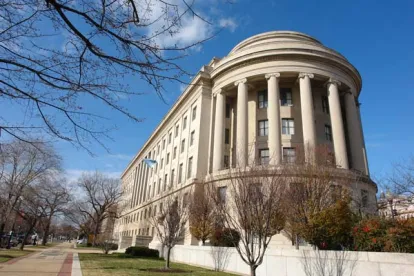On September 25, 2013, the Federal Trade Commission (FTC) and Department of Justice (DOJ) announced the issuance of a joint model waiver[i] of confidentiality for individuals and companies to use in merger and civil non-merger matters involving concurrent review by the DOJ or FTC and non-U.S. competition authorities. The model waiver was "designed to streamline the waiver process to significantly reduce the burden on individuals and companies, as well as to reduce the agencies’ time and resources involved in negotiating waivers."[ii] According to the FTC’s press release, the form "reflects both agencies’ recent experience with waivers" and is intended to update and replace the agencies’ earlier, separate forms. To help explain the agencies’ policies and practices related to waivers, they also issued a list of Frequently Asked Questions[iii] (FAQ).
According to their press release, the FTC works with more than 100 non-U.S. competition and consumer protection authorities, making coordination important. The agencies also cooperate with these foreign competition authorities pursuant to formal and informal bilateral and multilateral arrangements, and through informal cooperation.[iv] According to the FAQ, this cooperation includes the exchange of investigative information, usually through oral communications. These information exchanges may include publicly available information as well as "agency non-public" information, which is information that the agencies are not statutorily prohibited from disclosing, such as the existence or absence of an open investigation and staff views on market definition, competitive effects and remedies.[v]
A waiver allows the agencies to share an entity’s confidential information when confidentiality statutes and rules would generally preclude the agencies and foreign authorities from discussing such information. The agencies acknowledge that the use of the model waiver is voluntary, but they point out that not using the model waiver could lead to "practical" delays on the investigation’s timing and/or risk of inconsistent outcomes.[vi]
The model waiver provides:
-
Confidential information may be shared with foreign competition authorities to the extent it was obtained in connection with the investigation of the proposed transaction; the party giving the waiver acknowledges that non-U.S. agency will maintain confidentiality in accordance with its laws. In practice, parties will usually submit similar waivers to the foreign authorities as well.
-
Confidential information may be received from non-U.S. competition authorities, and the U.S. agencies will treat such information as if it were requested directly from the entity, providing the same level of confidentiality protection as under U.S. laws, including protection under the Freedom of Information Act.
-
Privileged information will be protected from disclosure to non-U.S. agencies if notified by the entity that privileged information was inadvertently produced. The U.S. agencies will not seek from foreign authorities information that would be protected by U.S. legal privilege, and will treat such information as inadvertently produced when appropriate.
If an entity determines that a more limited, negotiated waiver is appropriate, the agencies will accept such a waiver after review by FTC or DOJ management. Entities will need to weigh the benefits of a negotiated waiver, as it is likely to add considerable time and cost to the process.
[i] Model Waiver, available at http://www2.ftc.gov/oia/waivers/model_waiver.pdf.
[ii] Press release, available at http://www2.ftc.gov/opa/2013/09/jointwaiver.shtm.
[iii] Frequently Asked Questions, available at http://www2.ftc.gov/oia/waivers/waivers_faq.pdf.
[iv] See Press Release.
[v] FAQ at p. 2.
[vi] FAQ at p. 3.


 />i
/>i

